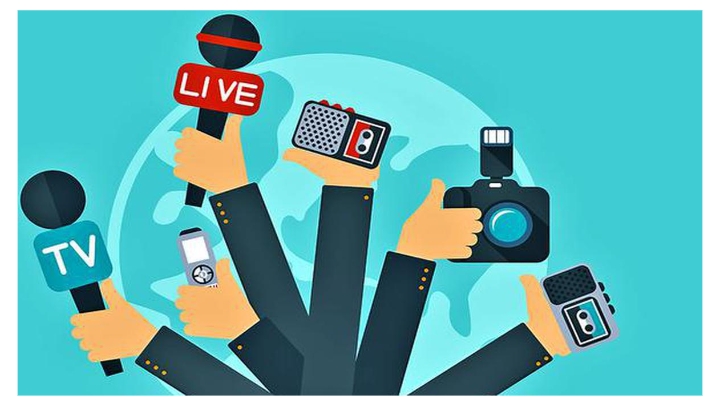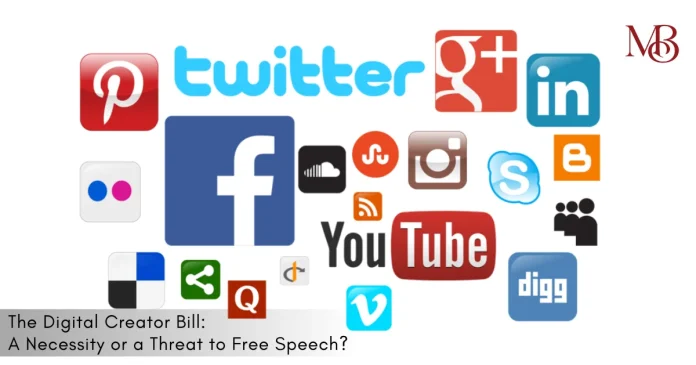The Indian government is currently considering the implementation of a Digital Creator Bill, a piece of legislation that has the potential to dramatically alter the digital landscape for content creators in the country. The proposed bill has ignited a contentious debate, with concerns about the possibility of increased censorship and government control over online expression.
Proponents of the bill argue that it is necessary to regulate digital space, ensure accountability, and curb the spread of harmful or misleading content. They contend that the bill would provide a framework for responsible content creation and protect users from potential online harms.
However, critics of the bill expressed concerns that it could stifle creativity, limit freedom of speech, and give the government excessive power to censor online content. They argue that the bill’s vague language and broad definitions could be used to suppress dissent and restrict legitimate forms of expression. Furthermore, they fear that the bill could disproportionately affect smaller creators and marginalized communities, who may not have the resources to navigate complex legal requirements or challenge government decisions.
The Digital Creator Bill has sparked a wider conversation about the balance between regulation and freedom of expression in the digital age. While the need for some form of regulation is acknowledged by many, there are concerns that the proposed bill may go too far, potentially undermining the democratic principles of free speech and open dialogue.
As the debate continues, it remains to be seen how the Indian government will address these concerns and strike a balance between protecting users and preserving the freedom of expression in the digital space. The outcome of this debate will have significant implications for the future of content creation and online expression in India.

Why the Government Wants to Regulate Digital Creators
In recent years, the rise of digital creators has transformed the landscape of information dissemination. These creators, armed with social media platforms and other online tools, have the power to reach vast audiences and shape public opinion.
While many digital creators use their platforms to raise awareness about important issues and educate their followers, others have been known to spread misinformation, fake news, and harmful content. This has led to growing concerns about the potential negative consequences of the unchecked power of digital creators.
Here’s why the government is interested in regulating digital creators:
1. Misinformation & Fake News
Misinformation & Fake News, the Digital Creator Bill aims to regulate digital content, but could it stifle the fight against misinformation and fake news?
- During the pandemic, several influencers spread hoaxes about vaccines and lockdowns.
- Some YouTubers promoted false remedies for COVID-19.
- AI-generated content is making it harder to tell what’s real and what’s fake.
2. Criminal Activities & Unethical Content
Not all digital content is harmless. Some influencers promote dangerous trends:
| Type of Harmful Content | Example |
| Exam cheating tricks | Telegram groups selling leaked question papers |
| Hacking tutorials | YouTube videos on how to hack social media accounts |
| Scams & frauds | Fake Investment Schemes by Influencers |
| Deepfake & AI abuse | Fake celebrity videos spreading misinformation |
3. Political & Social Control
This section will explore the potential for governments to utilize the Digital Creator Bill to stifle dissent and control online narratives.
- Governments worldwide want to control online narratives.
- Many influencers speak against government policies, which some officials see as a threat.
- With elections coming up, controlling digital voices could help in shaping public opinion.
Pros & Cons of the Digital Creator Bill
Like everything, this bill has good and bad sides.
✅ Pros: Why the Bill Might Be Good
- Stops Fake News – Helps control misinformation and deepfakes.
- Protects Young Users – Stops harmful content from reaching kids.
- Holds Creators Accountable – Influencers making false claims will face penalties.
- Reduces Scams – Prevents fraudsters from misusing digital platforms.
❌ Cons: Why the Bill Might Be Bad
- Risk of Censorship – Could silence independent voices and journalists.
- Government Overreach – Authorities may abuse their power to remove criticism.
- Creativity Limitations – Strict rules might make content boring and controlled.
- Favors Big Brands – Small creators may struggle with compliance costs.
Global Perspective: How Other Countries Handle This
India is not the first country to think about this. Let’s see how other countries regulate digital creators:
| Country | Regulation |
| EU | Digital Services Act (DSA) – Holds platforms responsible for fake news |
| USA | Section 230 – Protects platforms but is under debate |
| China | Strict censorship of influencers and content |
| Australia | Fines influencers spreading false information |
India’s Digital Creator Bill could be similar to China’s strict censorship or take a balanced approach like the EU.
What This Means for Influencers & Creators
If the Digital Creator Bill passes, here’s what might change for content creators:
- Mandatory Registration – Creators may need to register like journalists.
- Stricter Content Policies – Misinformation could lead to heavy fines or bans.
- More Platform Responsibility – YouTube, Instagram, and others may need to fact-check.
- Possible Licensing Fees – Like traditional media, influencers might need a license to create content.
Striking the Right Balance
A fair Digital Creator Bill should:
✔️ Regulate harmful content without restricting creativity.
✔️ Hold influencers accountable without excessive censorship.
✔️ Protect free speech while ensuring digital safety.
✔️ Differentiate between fake news and genuine criticism.
The Digital Creator Bill is a double-edged sword. While it can protect people from misinformation and scams, it can also be misused for censorship. The real challenge is to find the right balance.
You might also like: Samay Raina Deletes All Videos from ‘India’s Got Latent’: What Happened?
What do you think? Should India introduce a Digital Creator Bill? Or will it do more harm than good? Let’s discuss this in the comments!
FAQs
1. What is the Digital Creator Bill?
The Digital Creator Bill is a proposed law in India to regulate content creators and hold them accountable for misinformation, scams, and harmful content.
2. Will the bill affect all digital creators?
Most likely, it will target large creators and influencers who spread news, opinions, or promotional content. Hobby creators may not be affected.
3. Is this the same as censorship?
Not necessarily. If implemented fairly, it can prevent fake news. But if misused, it can become a tool for government control.
4. How will it affect YouTube and Instagram influencers?
Influencers may need to follow stricter guidelines, fact-check information, and disclose paid promotions more clearly.


